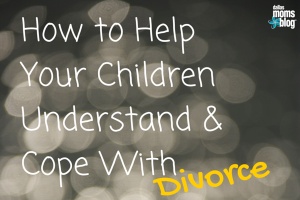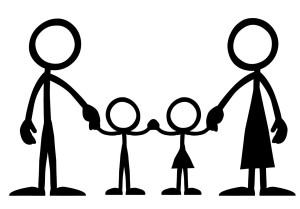 It was two months ago when my son, age 5, asked me about my parents’ divorce. We were in the car going to school, and suddenly at a stop light he said, “So YiaYia and Poppi used to be married and now they are not. Why?”
It was two months ago when my son, age 5, asked me about my parents’ divorce. We were in the car going to school, and suddenly at a stop light he said, “So YiaYia and Poppi used to be married and now they are not. Why?”
I’m going to be honest… I was completely unprepared to answer on the spot. And looking back, I was also completely unprepared to cope with my parents’ divorce when it happened.
The irony is that when I was a school counselor, I frequently talked to other children about divorce. The conversation with my son made me realize, in the future, I need to be more prepared and I believe the same is true for other parents. It is estimated that fifty percent of marriages will end in divorce. Even if your family is together, your children will most likely have friends with divorced parents.
So how should we help our children understand or cope with divorce?
Whether your family is going through a divorce or someone you know is, here are a few tips that experts recommend:
Keep the Message Clear and Simple
Young children do not need a long and complicated explanation. Keep your conversation simple and concise.
- Some mommies and daddies are healthier living apart
- You/they are still loved
- It is not your/their fault
Books can also be a useful dialogue tool for parents. Dinosaurs Divorce by Marc Brown and Laurie Krasny and Two Homes by Claire Masurel are children’s books that aid in age appropriate communication.
Parents should also be prepared to answer questions, especially if your family is actively going through a divorce. For example:
- Why did this happen?
- Where will I live?
- Can I still see my friends?
- Can I still do my favorite activities?
- Is it my fault?
Keep All Negative Talk Away from the Children
Children do not need to know the negative details behind the divorce. These hurtful facts can cause insecurity, confusion, and often times the feeling that they must choose one parent over the other. Any fighting or talk of divorce should be done privately, behind closed doors.
Keep Your Interactions Respectful
Young children will reflect their parents’ moods and attitudes towards one another. All face to face interactions should remain civil and respectful. In an “at fault” divorce this may mean one parent, as difficult as it may be, must take the high road.
Keep the Routine Going
Young children thrive on a routine, and divorce can throw a wrench in a child’s day-to-day life. It is recommended that both parents do their best to maintain the same daily routine and discipline strategies. Continuity between mom and dad will help the children feel a sense of order and security. This means parents will have to communicate on a regular basis even through times of discord.
Consider Getting Help
Divorce is difficult for everyone in the family and each person will cope in a unique way. Young children, especially, may not know how to verbalize their thoughts and emotions. A licensed counselor will be able to open the lines of communication through age appropriate therapy techniques. In addition, parents may need their own help and outlet as they process through this major life change.
Divorce is very trying for all family members involved. In addition, children hear about divorce at a young age. I have learned that I need to be prepared to answer my children’s questions now and as they mature.














